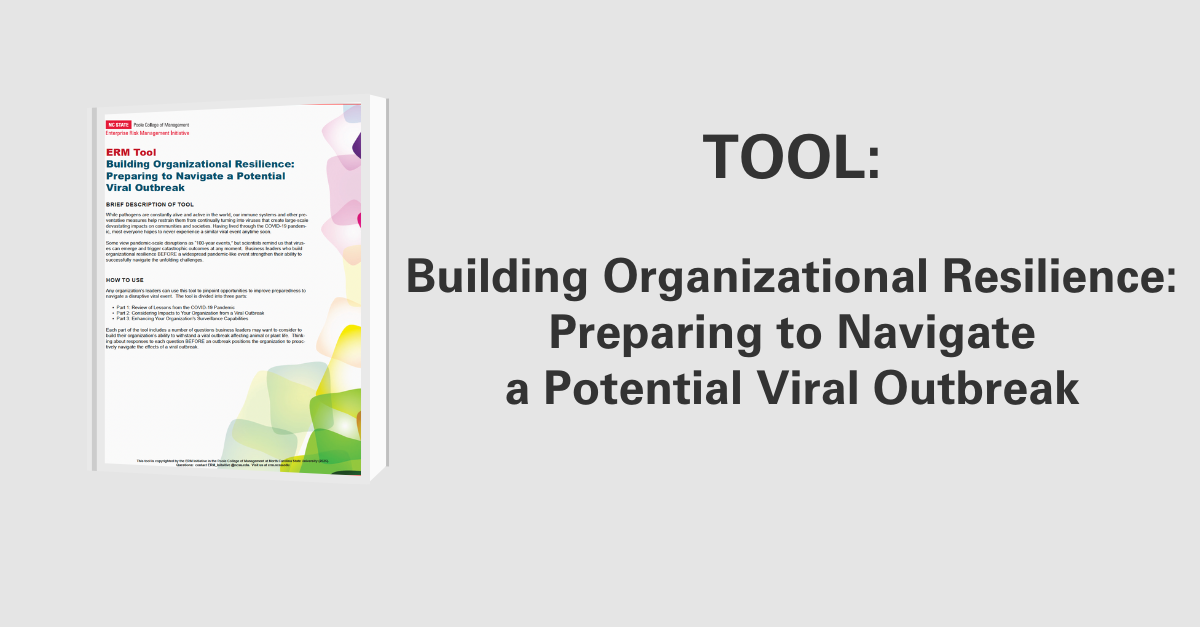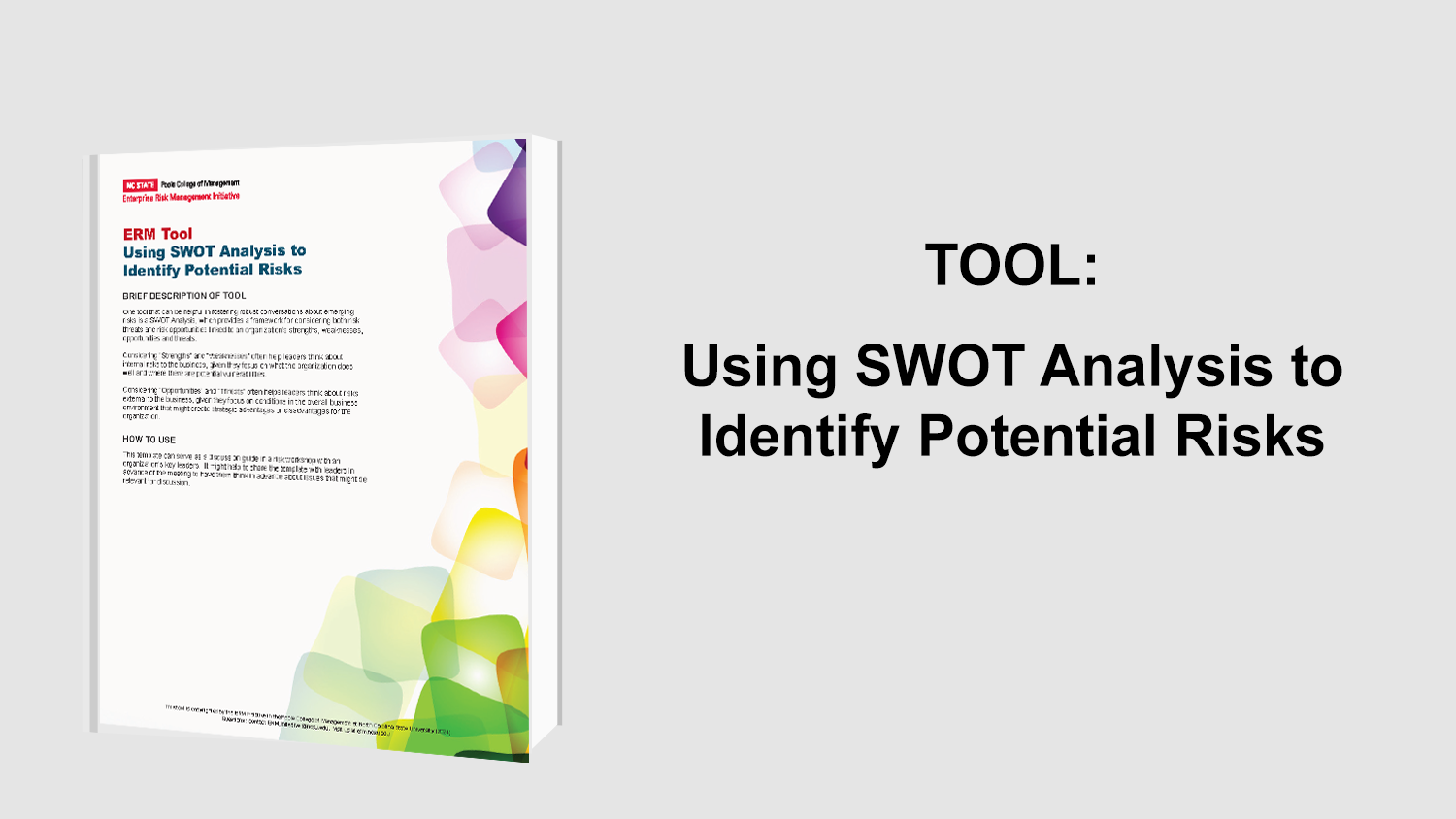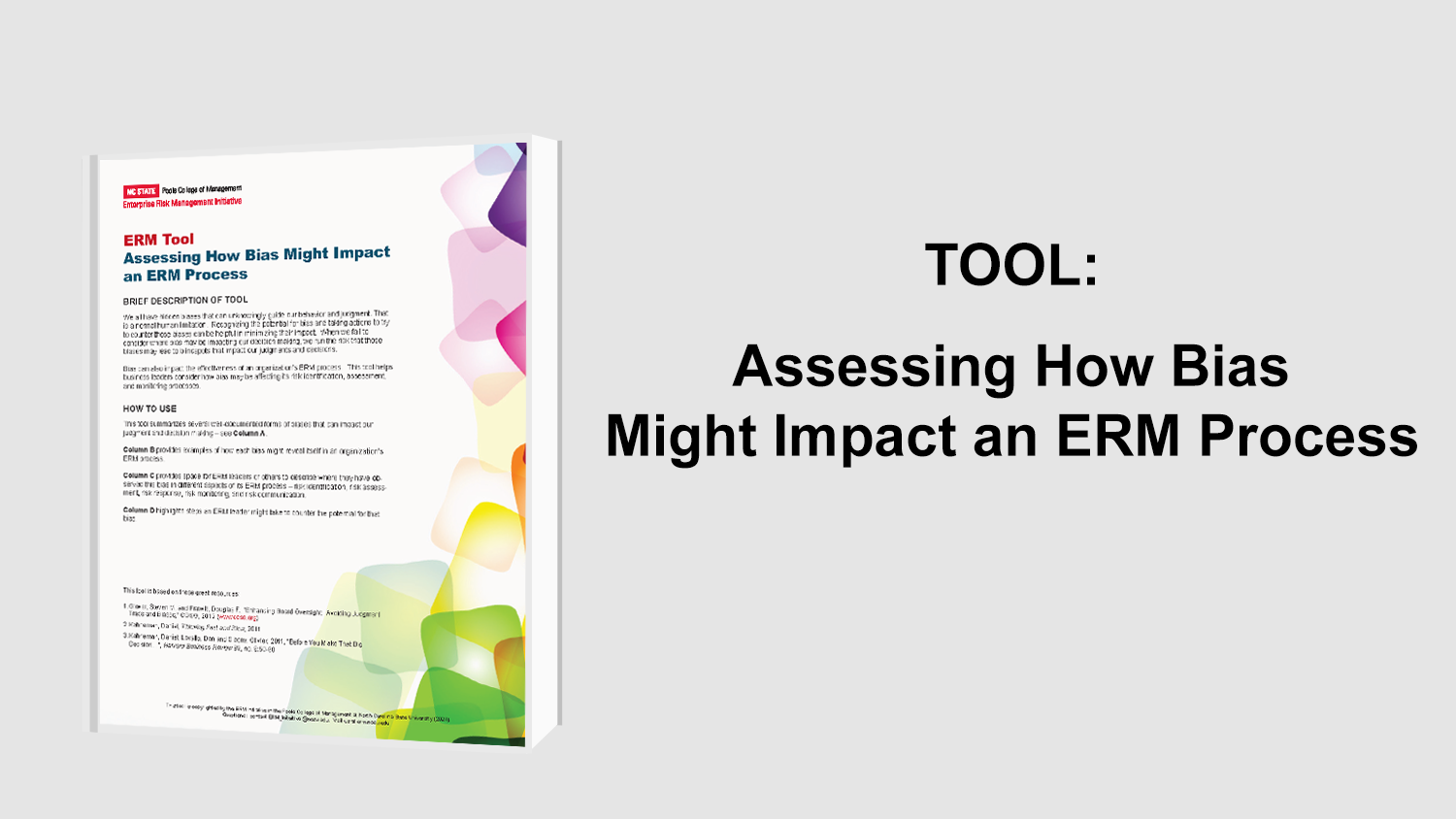All Resources

What is Enterprise Risk Management (ERM)?

Risk Meets Reality: Outsmarting Viral Outbreaks

ERM Tool: Building Organizational Resilience Against Viral Outbreaks

The Role of Corporate Boards in Enterprise Risk Management

Leveraging External and Internal Sources for Risk Insights

ERM Tool: Using SWOT Analysis to Identify Potential Risks

Facilitating Effective Risk Workshops

Boosting Dialogue About Risks on the Horizon

How C-Suite Leaders Are Navigating Current and Future Risks

ERM Tool: Assessing How Bias Might Impact an ERM Process
